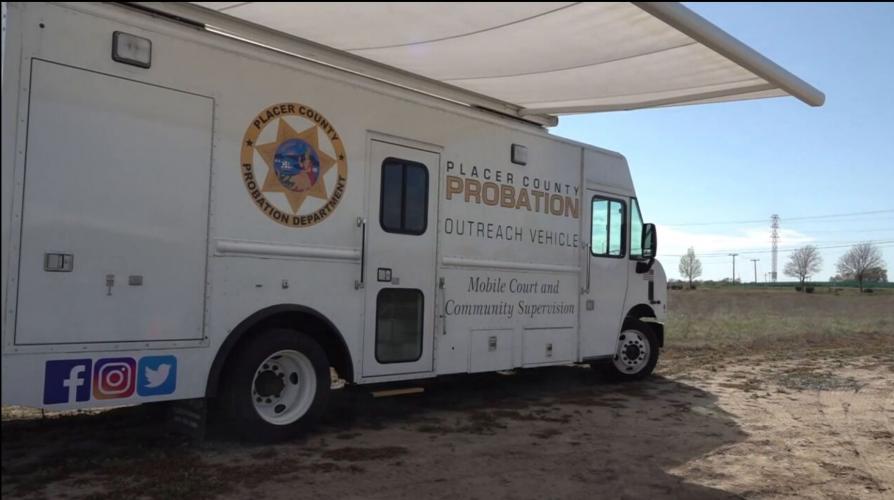CBS 13 Highlights Placer County Probation Outreach Vehicle
Placer County Probation is Innovating to Enhance Safety by Increasing Access to Tools, Resources for Those in Need
Innovating to remove barriers for justice-involved people in Placer County, particularly the unhoused and those with transportation barriers, the Placer County Probation Department’s Probation Outreach Vehicle (POV) is out in communities working to bring services to the community and enhance safety and success for justice-involved individuals.
Watch this story from Velena Joes at CBS Sacramento.
Below is a portion of the story:
“The more people we can touch, the more barriers we can break, the more success we are going to have as a justice system,” said Marshall Hopper, county chief probation officer.
Hopper and his team are taking an 8-by-30-foot-long truck on the road. Individuals are able to meet the truck in their own neighborhood and attend misdemeanor court hearings inside while communicating with a judge through video.
A probation officer and health and human services representatives are also there to help.
“We have someone that can help them with terms and conditions, and at the same time, a practitioner [is there] to do assessments for drug abuse and get them into programs and services,” Hopper said.
The probation department also plans to use the mobile unit for training programs.
“With this video here, we can hold classes and link it to our reentry program,” Hopper said. “So they can sit here and attend probation classes at the same time.”
Jake Chatters, the court executive officer at Placer County Superior Court, hopes the system eliminates missed court appearances.
“Transportation can be a significant issue, and when that is an impediment to a court appearance, that results into a failure to appear that can have pretty severe consequences,” he said.
Initially, the unit will be used to cater to homeless populations in Auburn and Roseville and later expand to help address those with outstanding warrants. It’s an idea brought by virtual court hearings during the pandemic.

